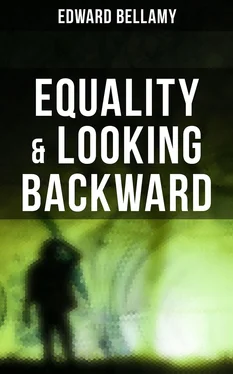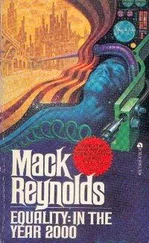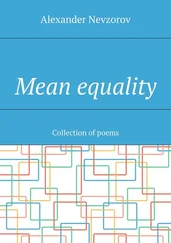By way of attempting to give the reader some general impression of the way people lived together in those days, and especially of the relations of the rich and poor to one another, perhaps I cannot do better than to compare society as it then was to a prodigious coach which the masses of humanity were harnessed to and dragged toilsomely along a very hilly and sandy road. The driver was hunger, and permitted no lagging, though the pace was necessarily very slow. Despite the difficulty of drawing the coach at all along so hard a road, the top was covered with passengers who never got down, even at the steepest ascents. These seats on top were very breezy and comfortable. Well up out of the dust, their occupants could enjoy the scenery at their leisure, or critically discuss the merits of the straining team. Naturally such places were in great demand and the competition for them was keen, every one seeking as the first end in life to secure a seat on the coach for himself and to leave it to his child after him. By the rule of the coach a man could leave his seat to whom he wished, but on the other hand there were many accidents by which it might at any time be wholly lost. For all that they were so easy, the seats were very insecure, and at every sudden jolt of the coach persons were slipping out of them and falling to the ground, where they were instantly compelled to take hold of the rope and help to drag the coach on which they had before ridden so pleasantly. It was naturally regarded as a terrible misfortune to lose one’s seat, and the apprehension that this might happen to them or their friends was a constant cloud upon the happiness of those who rode.
But did they think only of themselves? you ask. Was not their very luxury rendered intolerable to them by comparison with the lot of their brothers and sisters in the harness, and the knowledge that their own weight added to their toil? Had they no compassion for fellow beings from whom fortune only distinguished them? Oh, yes; commiseration was frequently expressed by those who rode for those who had to pull the coach, especially when the vehicle came to a bad place in the road, as it was constantly doing, or to a particularly steep hill. At such times, the desperate straining of the team, their agonized leaping and plunging under the pitiless lashing of hunger, the many who fainted at the rope and were trampled in the mire, made a very distressing spectacle, which often called forth highly creditable displays of feeling on the top of the coach. At such times the passengers would call down encouragingly to the toilers of the rope, exhorting them to patience, and holding out hopes of possible compensation in another world for the hardness of their lot, while others contributed to buy salves and liniments for the crippled and injured. It was agreed that it was a great pity that the coach should be so hard to pull, and there was a sense of general relief when the specially bad piece of road was gotten over. This relief was not, indeed, wholly on account of the team, for there was always some danger at these bad places of a general overturn in which all would lose their seats.
It must in truth be admitted that the main effect of the spectacle of the misery of the toilers at the rope was to enhance the passengers’ sense of the value of their seats upon the coach, and to cause them to hold on to them more desperately than before. If the passengers could only have felt assured that neither they nor their friends would ever fall from the top, it is probable that, beyond contributing to the funds for liniments and bandages, they would have troubled themselves extremely little about those who dragged the coach.
I am well aware that this will appear to the men and women of the twentieth century an incredible inhumanity, but there are two facts, both very curious, which partly explain it. In the first place, it was firmly and sincerely believed that there was no other way in which Society could get along, except the many pulled at the rope and the few rode, and not only this, but that no very radical improvement even was possible, either in the harness, the coach, the roadway, or the distribution of the toil. It had always been as it was, and it always would be so. It was a pity, but it could not be helped, and philosophy forbade wasting compassion on what was beyond remedy.
The other fact is yet more curious, consisting in a singular hallucination which those on the top of the coach generally shared, that they were not exactly like their brothers and sisters who pulled at the rope, but of finer clay, in some way belonging to a higher order of beings who might justly expect to be drawn. This seems unaccountable, but, as I once rode on this very coach and shared that very hallucination, I ought to be believed. The strangest thing about the hallucination was that those who had but just climbed up from the ground, before they had outgrown the marks of the rope upon their hands, began to fall under its influence. As for those whose parents and grand-parents before them had been so fortunate as to keep their seats on the top, the conviction they cherished of the essential difference between their sort of humanity and the common article was absolute. The effect of such a delusion in moderating fellow feeling for the sufferings of the mass of men into a distant and philosophical compassion is obvious. To it I refer as the only extenuation I can offer for the indifference which, at the period I write of, marked my own attitude toward the misery of my brothers.
In 1887 I came to my thirtieth year. Although still unmarried, I was engaged to wed Edith Bartlett. She, like myself, rode on the top of the coach. That is to say, not to encumber ourselves further with an illustration which has, I hope, served its purpose of giving the reader some general impression of how we lived then, her family was wealthy. In that age, when money alone commanded all that was agreeable and refined in life, it was enough for a woman to be rich to have suitors; but Edith Bartlett was beautiful and graceful also.
My lady readers, I am aware, will protest at this. “Handsome she might have been,” I hear them saying, “but graceful never, in the costumes which were the fashion at that period, when the head covering was a dizzy structure a foot tall, and the almost incredible extension of the skirt behind by means of artificial contrivances more thoroughly dehumanized the form than any former device of dressmakers. Fancy any one graceful in such a costume!” The point is certainly well taken, and I can only reply that while the ladies of the twentieth century are lovely demonstrations of the effect of appropriate drapery in accenting feminine graces, my recollection of their great-grandmothers enables me to maintain that no deformity of costume can wholly disguise them.
Our marriage only waited on the completion of the house which I was building for our occupancy in one of the most desirable parts of the city, that is to say, a part chiefly inhabited by the rich. For it must be understood that the comparative desirability of different parts of Boston for residence depended then, not on natural features, but on the character of the neighboring population. Each class or nation lived by itself, in quarters of its own. A rich man living among the poor, an educated man among the uneducated, was like one living in isolation among a jealous and alien race. When the house had been begun, its completion by the winter of 1886 had been expected. The spring of the following year found it, however, yet incomplete, and my marriage still a thing of the future. The cause of a delay calculated to be particularly exasperating to an ardent lover was a series of strikes, that is to say, concerted refusals to work on the part of the brick-layers, masons, carpenters, painters, plumbers, and other trades concerned in house building. What the specific causes of these strikes were I do not remember. Strikes had become so common at that period that people had ceased to inquire into their particular grounds. In one department of industry or another, they had been nearly incessant ever since the great business crisis of 1873. In fact it had come to be the exceptional thing to see any class of laborers pursue their avocation steadily for more than a few months at a time.
Читать дальше










